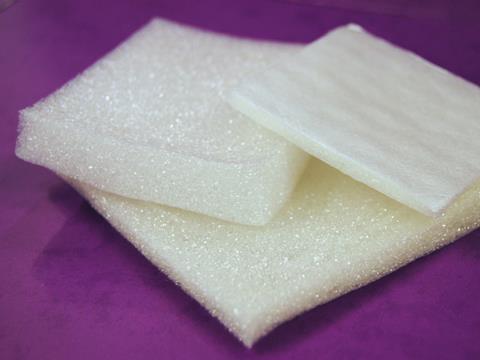
Stora Enso has announced its plans to build a pilot facility for the production of Cellufoam, a lightweight, fibre-based foam material for protective packaging and cushioning.
With the introduction of the new plant, which will be located at the company’s Fors Mill in Sweden, Stora Enso is aiming to provide a renewable, recyclable replacement for oil-based polymer foams which are widely used today.
The initial target application for Cellufoam will be the protective packaging of fragile products, for example in consumer electronics. The company also says that bio-based foams have the potential to replace polymeric foams in a range of markets and applications where the demand for sustainable materials is increasing, such as sports equipment and thermal insulation in shipping.
“The interest in sustainable packaging solutions is already large and continuously growing. Companies are looking for bio-based materials in order to achieve their own environmental goals for recycling, reducing plastic waste and using fossil-free materials, while maintaining high-quality packaging performance,” says Markus Mannström, executive vice president of Stora Enso’s biomaterials division.
“Our bio-based foam offers a renewable, recyclable, and biodegradable alternative to traditional oil-based packaging foams such as expanded polyethylene (EPE) and expanded polystyrene (EPS). With this pilot, we continue to build on our long-term R&D work while introducing innovative materials to replace fossil-based ones,” Mannström adds.
Stora Enso’s pilot aims to evaluate and validate Cellufoam as a packaging foam in customer tests and to further develop the production process. The new pilot plant will be part of Stora Enso’s biomaterials division.
The design and engineering of the pilot facility will start immediately, and it is estimated that the plant will be ready in the fourth quarter of 2021. Decisions about commercialisation will follow, after evaluating the results of the pilot-scale production.
Stora Enso’s Fors Mill today produces light-weight paperboards for consumer packaging. The mill’s energy production is free from fossil-CO2 emissions, and the company says that its pilot plant investment will not impact the mill’s current production.














